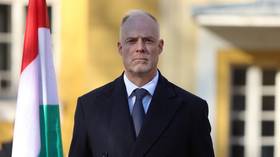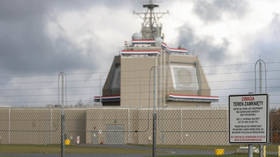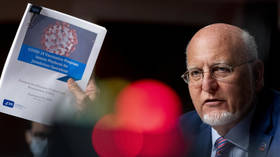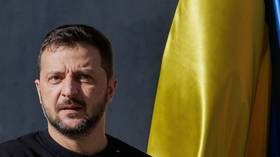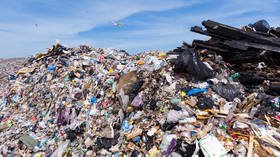Kremlin comments on halt of Russian gas supplies to Germany

The stopping of Russian gas supplies to Germany via the Yamal-Europe network is not political or related to the wait for certification of the controversial Nord Stream 2 pipeline, the Kremlin said on Tuesday.
The previous day, it was reported that state-owned giant Gazprom, the system’s operator in Russia and Belarus, had booked no capacity for gas transit on Tuesday. The choice not to export natural gas comes as demand for energy in both Russia and the rest of Europe reaches its winter peak.
Day time temperatures in Moscow this week are forecast to be below minus 20 degrees Celsius, which is minus four in Fahrenheit.
“This is an absolutely commercial situation. For the specific reasons, you should ask Gazprom,” he explained.
Peskov was asked whether the supply of gas to the rest of Europe was being halted due to the current situation with Nord Stream 2. The pipeline was completed in September and now connects Russia to Germany without passing through any third country. This means that, once it starts operation, gas transit will become less reliant on third parties, thereby lowering the commodity’s price.
However, due to issues with bureaucracy, it is yet to be certified. Some Western officials have accused Moscow of purposefully reducing gas supplies, allegedly to force the EU to approve the pipeline.
“There is no connection here,” Peskov clarified.
The Yamal-Europe transnational gas pipeline runs from northwest Siberia to Frankfurt-an-der-Oder in eastern Germany. Last year, around one-fifth of all natural gas sent to Western Europe went via Belarus. Energy supplies through the system vary based on consumption, including within Russia, which Gazprom prioritizes over sending fuel abroad.
On Monday, Kiev also accused Russia of sending the minimal amount of gas through Ukraine, suggesting that Moscow is trying to “blackmail” Europe into certifying Nord Stream 2. Writing on Facebook, the head of Ukraine’s state-owned Gas Transport System said that Russia had broken promises to increase supply to the EU while noting that the contract had been fulfilled.





